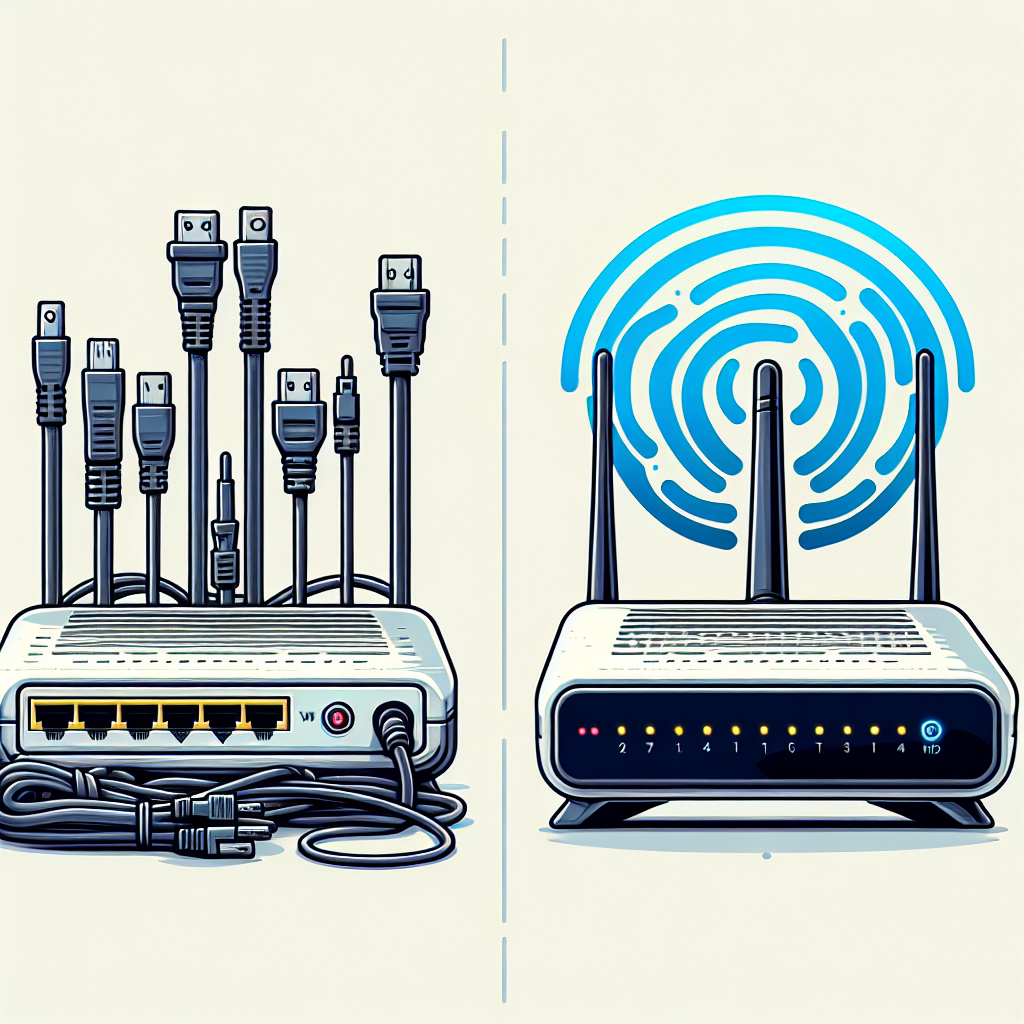
Introduction
When it comes to setting up a home or office network, one of the fundamental choices you’ll have to make is whether to use a wired router or a wireless router. Each type has its own set of advantages and disadvantages, depending on your specific needs and circumstances. In this article, we will delve into the differences between wired and wireless routers, highlighting their features, benefits, and limitations.
Wired vs. Wireless Router Comparison
| Aspect | Wired Router | Wireless Router |
|---|---|---|
| Connection Type | Physical cables (Ethernet) | Wi-Fi (Wireless signals) |
| Installation Complexity | Requires cable management | Simpler, fewer cables |
| Mobility | Limited | Highly mobile |
| Speed | Usually faster | Generally slower but improving |
| Security | More secure | Potential vulnerabilities |
| Interference | Minimal | Susceptible to interference |
Connection Type
Wired Routers: Wired routers connect devices using Ethernet cables. Each device that needs internet access must be physically connected to the router via a cable. This leads to a stable and often faster connection, without the risk of signal interference.
Wireless Routers: In contrast, wireless routers transmit data over Wi-Fi, allowing devices to connect without the need for physical cables. This leads to greater flexibility and convenience, especially in larger homes or offices.
Installation Complexity
Wired Routers: The installation of wired routers is often more complex due to the need for cable management. You’ll need to ensure that Ethernet cables are long enough to reach from the router to each connected device, which can involve drilling holes and running cables through walls.
Wireless Routers: Wireless routers, on the other hand, are generally simpler to install. They require fewer cables – mainly the power cable and the cable from your internet provider. This makes setting up wireless routers a relatively straightforward process.
Mobility
Wired Routers: Devices connected to a wired router are restricted by the length of their Ethernet cables, limiting mobility around the home or office. This can be particularly inconvenient for users who need to move their devices frequently.
Wireless Routers: The main advantage of wireless routers is the freedom of mobility they provide. Users can move around their home or office with their laptops, tablets, or smartphones without losing their internet connection, provided they stay within the router’s range.
Speed
Wired Routers: Wired connections are typically faster and more reliable than wireless. Ethernet cables provide consistent speed and bandwidth, which can be crucial for businesses or applications that require stable, high-speed connections, such as video conferencing or online gaming.
Wireless Routers: Although wireless technology has significantly improved, wireless connections can still be slower and less reliable than wired ones. Factors such as physical obstructions and interference from other devices can impact wireless performance. However, advancements in Wi-Fi standards (e.g., Wi-Fi 6) are narrowing the gap.
Security
Wired Routers: Wired networks are inherently secure because they do not broadcast signals over the air. Unauthorized access is limited since someone would need to physically connect to the network.
Wireless Routers: Wireless networks can be more vulnerable to hacking and unauthorized access because the data is transmitted over the air. To mitigate these risks, proper security measures such as strong passwords, WPA3 encryption, and regular firmware updates are essential.
Interference
Wired Routers: Wired connections are not susceptible to interference, making them ideal for environments where a stable connection is crucial. They are not affected by physical barriers or other electronic devices.
Wireless Routers: Wireless connections can be affected by a range of interferences. Physical obstacles like walls, as well as other electronic devices that operate on similar frequencies (e.g., microwaves, Bluetooth devices), can impact the quality of the wireless signal.
Conclusion
Choosing between a wired and a wireless router depends largely on your specific needs and circumstances. Wired routers offer stable, high-speed connections with enhanced security but lack mobility. Wireless routers provide the convenience of mobility and easier installation but may face speed and security challenges. Understanding these differences can help you make an informed decision that best suits your networking needs.
Leave a Reply